#charisse locks
Text


Charisse & Hinata's customized skateboards
When Obey Me! announced the skateboard events, it give me an idea for Charisse and Hinata.
(+ Kanako's skateboard I put in here)
#twst#twisted wonderland#regal fairytale academy#rfa#twst oc#twisted wonderland oc#twst mc#twisted wonderland mc#charisse locks#hinata mastuoka#obey me generation#free! generation
11 notes
·
View notes
Text






Valentine Journal
Happy Valentine's day to everyone!! I made these before the Valentine's day coming. Hope you all like it for having a Sweet Beginnings 💕
#twisted wonderland#twst#obey me#impish royals#pixies#obey me generation#charisse locks#meribella jewel#renee sofia petunia rosa#coralia marina#valentines day#journal#art journal#scrapbook
6 notes
·
View notes
Text
Young Bride Part 2
It had not been an easy transition so far. Just two days ago, my young bride, Lana, had enslaved me while we were on a trip on my boat. True to her word, when we returned, the house was staffed with females, all of whom were just as committed to my enslavement as Lana was committed to it. All my clothing had been destroyed and discarded, I was to be naked and locked in chastity forever, imprisoned in what used to be my mansion.
I had even tried to escape one night after slipping out of my bonds as she slept, but her female security guards outside had caught me on the grounds and returned me to captivity. I slept in handcuffs and shackles that night before Lana ordered a cage built for me.
I was cleaning one of the many rooms, my hands locked in handcuffs in front of me, my ankles in shackles, still locked in chastity, when I heard a woman enter the room. Thinking it was one of Lana’s staff - she was off running what used to be my company - I remained on my knees, cleaning the floor.
A pair of bare female feet stopped near me, and I heard the woman sit in a chair.
“You look good in that chastity cage, Ryan.”
My head snapped up to look at my mother-in-law, Lana’s beautiful mother, Charisse, who looked at me smugly, her feet inches from my face.

“She told me all about it,” Charisse told me. “I’m moving in here to help the staff keep a closer eye on you, slave. Now kiss my feet and welcome me.”
My heart sank. I couldn’t stand Charisse - and even she was younger than I was. She hated me - called me a cradle robber and all manner of other names for going after her young daughter.
Now I was her slave too. My life couldn’t get any worse, or so I thought.
“I said kiss my feet,” the woman ordered. “I guess someone wants a spanking.”
I threw myself at her feet, kissing them enthusiastically. It was humiliating, but way better than being spanked by her.
“Please don’t, Miss Charisse,” I begged meekly. “I’ll be a good boy. Welcome to my enslavement.”
“It’s too late,” she said, causing tears to spring into my eyes instantly. “I was told failure to obey immediately required you to be punished. Let’s get you over my lap for your first spanking from your mother-in-law.”
She paused. “And from now on, slave, you address me as Mommy.”
31 notes
·
View notes
Note
Ok who of the guys couldn't keep their big mouth shut? 😂
Hela just making them undress... I hope the guys had enough binoculars for everyone and didn't have to fight over that. Did Hela truly get rid of their stuff or did she lock it somewhere? Also seems like the dad of one of the flowers (I forgot who sorry) would be worried and potentially come to the first house at least? I wonder if there's a plan in place. Sorry for so many questions but do the girl have the same dresses with different colours and embroidery or are they a bit more different?
Lloyd was probably running his mouth lmaoooooo.
And who knows what Hela did. Maybe she burned it to release the toxins, idk lolll.
Here are my selects for dresses but yall can adjust to size or imagine whatever
Lily/reader

Ashley/Rose

Rin/Dahlia

Charisse/Iris

Aisha/Daisy
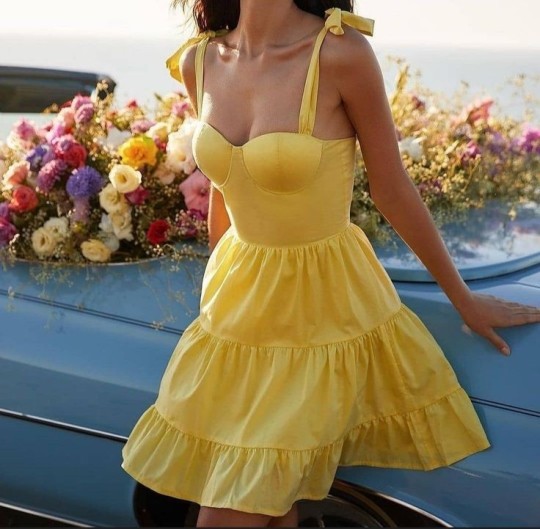
Maryam/Marigold

Molly/Violet

Selina/Azalea

13 notes
·
View notes
Photo

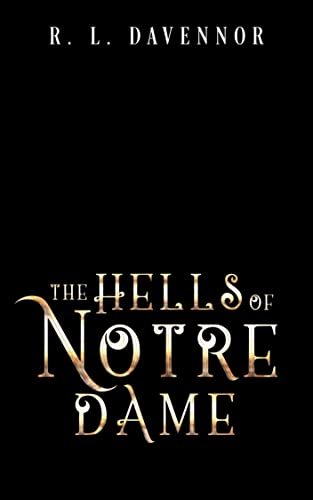
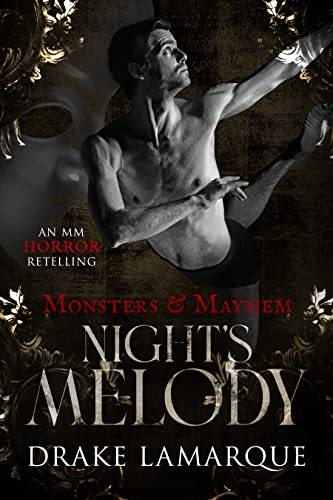



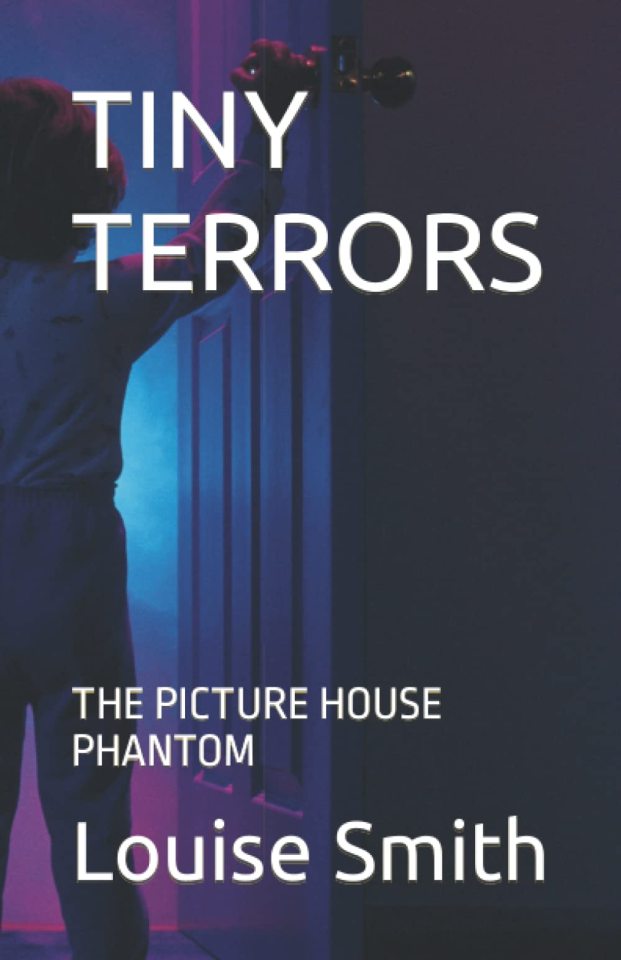
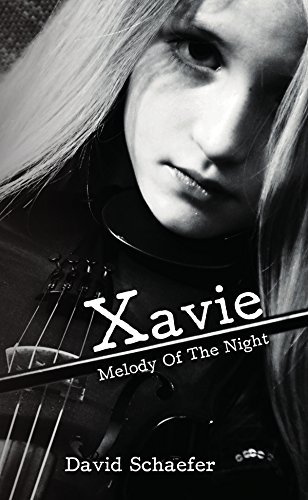
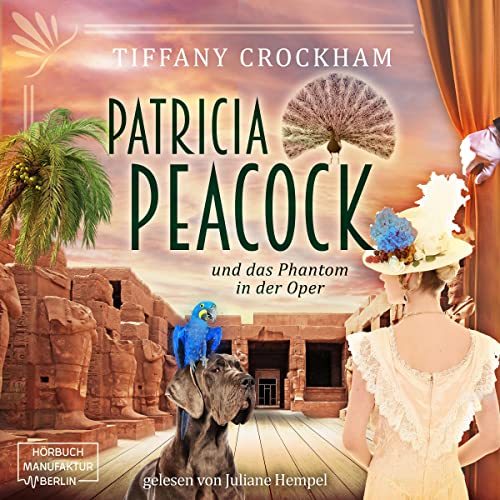
September has passed and we’re heading into the cool fall hours, and the Phantom story certainly delivered us new reading material!
Patricia Peacock und das Phantom in der Oper by Tiffany Crockham is a German-language version of the story and leans toward murder mystery, starring Patricia and John Peacock, for whom this is the fourth book. They’re visiting the Cairo opera house, only to discover that the local soprano, Brunella Carvalotti, is being continually threatened by a mysterious Phantom that wants to remove her to make way for his own protege.
The Hells of Notre Dame by R. L. Davennor is the first in a series that is definitely Doing Things, in all capital letters. A mash-up of the Phantom story and Victor Hugo’s The Hunchback of Notre Dame, it features a Phantom who has fallen in love with Esmeralda, and also they are lesbians. So few downsides on this one, is what I’m saying. (No idea if the gargoyles appear but you know I’ll be ready if they do, after When Angels Wept.)
Shattered Melodies by Jessica Eissfeldt is set during World War II and revolves around a scarred ex-soldier who runs into his first love singing in a club and decides to give romance one more try, even though he’s concerned about his face being a problem.
The Phantom’s Pet by Kassandra Kross is a dark erotica option in which a young performer attending a theatre group finds themself locked inside the Opera Ghost and getting extremely molested by the resident “ghost”.
Night’s Melody by Drake LaMarque is a hardcore BDSM gay romance AND a direct adaptation of the story, setting it in modern times with Christophe, a ballet dancer catapulted to being a singing darling after a surprise gala performance, and the mysterious Phantom who trains him, as well as Matthieu, the fellow dancer who loves him. It promises group scenes, if you’re into all your Phantom characters exploring together!
Symphony of the Night by Germaine Mooney is a collection of Mooney’s short stories and poems, all of them Phantom-themed! (Not a surprise, considering this is Mooney’s third Phantom-related work at least.) Twenty-four stories, including some hot and sexy ones, no waiting!
Xavie: Melody of the Night by David Schaefer is an interesting one; set during the Great Depression in the United States, it’s mostly about a young violinist who gives lessons to impoverished children, only to be extremely struck by the skill of a particular little girl who has more than a whiff about her of perhaps being a child version of Christine.
The Masked Stranger by MaryAnn Sires is a prequel to some of Sires’ other works, revolving around a masked architect who wants to build his own new theater in New York City, and who may just be the grandfather of some more recognizable characters later in Sires’ series...
The Picture House Phantom by Louise Smith is a short story about a family that moves to a new town for a fresh start and decides to move into an old converted theater, only to discover that there may already be a tenant in the basement who is not very happy to see them.

We’ve also got the Masked series by Skye Anne Chariss, which is really four chapters being marketed as separate books more than a true series (they run arou 50-60 pages each). The premise involves a scarred man who falls in love with a woman at a masquerade ball but fears letting her see what lies under his mask in case she rejects him, and romance ensues.
That’s it for now, but stay tuned for next month and the HALLOWEEN HAUL!
#phantom of the opera#new phantom releases#germaine mooney#drake lamarque#rl davennor#kassandra kross#jessica essfeldt#tiffany crockham#maryann sires#louise smith#david schaefer
16 notes
·
View notes
Text
tagged by @cydd-charisse, thank you!!
(original prompts by @smol-bibliophile-firefly)
♫Do you play an instrument?
I played the flute for like eight years and the piccolo for 2 and would really love to get back into it, tbqh
•Favourite book characters?
ok ummm [tries to remember every book ive ever read] darrow from red rising! nona and gideon and pal and every character from the locked tomb maybe?
•What’s your star sign?
capricorn
•Favourite colour schemes?
cool tone colors
•Naps or long sleep?
long sleep bc its soooo hard for me to take naps
•What languages do you speak?
english and spanish fluently! [but sometimes i forget words teehee]
•Dreams/aspirations?
actually finish a manuscript and most especially the great american road trip [coast to coast!]
•Long hair or Short Hair?
have had long hair for the past three years but now im reconsidering ...
•Tea or coffee?
iced tea, sweetened!
•Bring a book character to life or go into a fictional world?
fictional world! fantasy is like, the ultimate period piece but with magic
tagging: @the-ghostmonument, @captainsamwlsn, @consistenthero, @mexicanlukeskywalker, @takiki16, @mossbawn, @crystalscions
<33
2 notes
·
View notes
Text
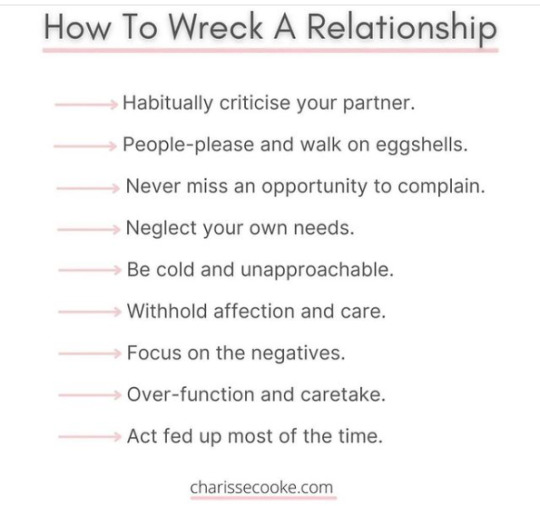
How to Wreck A Relationship
Are you being who you want to be in your relationship? We are so vulnerable in our partnerships we can drift into unhealthy and unhelpful ways of protecting ourselves so easily. And we can become someone we're not.
Relationships are challenging. They are difficult. And once we've experienced that after a while we retreat behind walls as a way of staying safe. Unfortunately staying safe in this way probably means pushing our partners away.
Underneath this behaviour, ironically, is probably a deep desire for closeness, connection and being loved. However, because of our defensiveness and because of our shutting people out we are making that extremely unlikely to happen.
There may well be an unconscious fantasy of sorts taking place within us, for our partners to do what it takes' break down our walls and dramatically show us how much we mean to them.
But our partners - who are equally vulnerable in the relationship - are not going to be inclined to break down our considerable walls if they feel *their* vulnerabilities are being pointed out, criticised and complained about much of the time.
And so two people stay in a protective mode rather than a collaborative and loving mode, and if we're not careful, the love and goodwill in the relationship will ebb away entirely...
And who we really are remains locked behind those walls too.
Here is an incredible chance to interact with our next brilliant speaker Charisse Cooke.
To be a part of this incredible eye-opening online event, join the WhatsApp group https://chat.whatsapp.com/GAh3J8LS5zIKk41ynHriEv or visit at https://www.reframing-you.com/charisse-cooke
#relationshipadvice#couplestherapy#couplestherapist#relationshiptherapy#relationshiptalk#couplescounseling#therapist#therapy#therapists#therapyworks#therapysession#counseling#counsellor#relationships#relationship#attachmentstyles#attachmentstyle#attachmenttrauma#attachments#explorepage
0 notes
Text
Wednesday Wisdom: Book Selection of the Week!
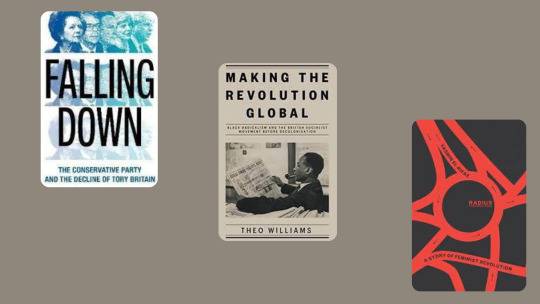
WhatsOn brings the book selection for the week. Divulge yourself in the books from the list and increase the bibliophile inside yourself. Cherish yourself with the new books in the house and entertain yourself throughout the week!
Falling Down by Phil Burton-Cartledge***
Falling Down
This tipping point has been a long time coming and Burton-Cartledge offers a critical analysis of this narrative. Since the era of Thatcherism, the Tories have struggled to find a popular vision for the United Kingdom. At the same time, their members have become increasingly old. Their values have not been adopted by the younger voters. The coalition between the countryside and the City interests is under pressure, and the latter is split by Brexit. The Tories are locked into a declinist spiral, and with their voters not replacing themselves the party is more dependent on a split opposition—putting into question their continued viability as the favoured vehicle of the British capital.
Making the Revolution Global by Theo Williams ****
Making Revolution Global
Making the Revolution Global shows how black radicals transformed socialist politics in Britain in the years before decolonisation. African and Caribbean activist intellectuals came to Britain during the 1930s and 1940s and intervened in debates about capitalism, imperialism, fascism and war. They consistently argued that any path towards international socialism must have colonial liberation at its heart. Theo Williams casts new light on responses to the 1935 Italian invasion of Ethiopia, the 1945 Fifth Pan-African Congress, and a wealth of other events and phenomena.
Radius: A Story of Feminist Revolution by Yasmin El-Rifae****
Radius
Journalist Yasmin El-Rifae was one of Opantish’s organizers, and this is her evocative, aching account of their work, as they raced to develop new tactics, struggled with a revolution bleeding into counter-revolution, and dealt with the long aftermath of assault and devastation. Told in a daring, hybrid narrative style drawn from years of interviews and her own, intimate experience, it is a story of overlapping circles: the circles of male attackers activists had to break through, the ways sexual violence can be circled off as “irrelevant” to political struggle, and the endless repetitive loops of living with trauma.
Organize, Fight, Win by Charisse Burden-Stelly and Jodi Dean***
Organize, Fight and Win
The first collection of its kind, Organize, Fight, Win brings together three decades of Black Communist women’s political writings. In doing so, it highlights the link between Communism and Black liberation. Likewise, it makes clear how Black women fundamentally shaped and were shaped by, Communist praxis in the twentieth century.
Read the full article
0 notes
Note
talk to me about stiles blindsiding the hell out of jackson with his absolutely insane dirty talking talent that leaves jackson flustered and blushing like HE’S the virgin and not stiles
In retrospect, it really shouldn’t have been a surprise. Stiles never shut up. Ever. It f the few constants in the universe, the Stilinski Motor Mouth.
That’s not to say it was a bad thing—Stiles had talked himself out of a hostage situation, a locked room with a chupacabra, and three speeding tickets, one of which was when he was riding passenger in Jackson’s Porsche. And Jackson, against his will, found it oddly comforting—trust was essential in any relationship, and he knew as soon as his plane touched down in California that as long as Stiles was talking, everything was going to be okay.
Which, in hindsight, was the stupidest mistake he had ever made.
Jackson’s year abroad (“yes, Stilinski, that’s what we’re calling it. It sounds way better than ‘the year my parents basically held me hostage in England’.”) had been a very long, but eye opening year of what felt like non stop therapy and physical training. The pack that had more or less adopted his sorry ass was nothing like Derek’s—meaning it was functional—but Jackson learned quickly that the alpha, a kindly woman named Charisse, didn’t take well to any of Jackson’s rich boy problems. Like, at all. She had taken to ignoring Jackson flat out when he was wrong, which was something that he quickly discovered was far more effective than any physical punishment, and made it well known that she was not going to hear a single complaint out of his mouth unless he was asking for help.
So when he finally broke down and begged for help, after three months of alternating back breaking physical training and completely pointed silence, she literally welcomed him with open arms—like, literally, hugged him and shoved a business card into his hands—to the world of therapy.
He learned (slowly, sure, but he still learned) about himself. About how he handled relationships, how he generally took on WAY too much blame, and weirdly enough, how important it was for him to talk things through.
Jackson could more or less pinpoint the exact point in his life where he realized that ‘talking being important to him’ and ‘Stilinski being important to him’ were one and the same. He could also pinpoint the exact place where the drywall in his bedroom had been patched after he had thrown his phone through the wall upon that realization.
Once he was over his tantrum, though, he simply accepted that fact and decided to move on. He continued to train. He continued therapy. And for the first time in the eight months he had been gone, he actually texted Stiles back (at the urging of his therapist, from a new phone, his old one lost in the walls of his apartment building).
Stiles had been texting him off and on for the months he had been gone, and Jackson was initially distraught to discover that he was the only member of the Beacon Hills pack that actually bothered to keep in touch with him (save Lydia, but it would take an act of god to keep the two of them apart). There were several strings of texts, none of which Jackson had replied to, none of which he was going to reply to.
The first text that Jackson sent Stiles, fully aware and not caring that his therapist was hovering over his shoulder, was only five words.
“You are important to me.”
Four months later, he claimed his inheritance, hugged his Alpha goodbye, and treated himself to one last purchase on his parents black card before he cut it up and threw it away—a one way, first class ticket to California.
Stiles met him at the terminal at LAX.
The rest, as they say, was history.
-
To his benefit, Stiles didn't seem all that shocked when Jackson came back from England as a person that was capable of communication.
What did shock him, though, was that Jackson didn’t just talk. It was that when Stiles spoke, Jackson actually listened.
Because Stiles rambled. He knew he rambled, and that when he rambled, people didn’t usually listen to him, they just kind of tuned out. Stiles thought that was what Jackson was doing as he paced around the living room in Jackson’s apartment, stopping only to kiss Jackson hello before complaining about one of the kids in the class he was TA-ing. So you could imagine his shock when Jackson laughed, shaking his head, asking if if was the same person who had mixed up cauterizing and catheterizing in last weeks essay, because “if it was, seriously Stilinski, I’m going to start blaming you for these kids stupidity.”
Stiles had come to a screeching halt, his mouth gaping, looking at Jackson like he had grown a second head, and Jackson’s smile immediately slipped when he looked up.
“You... you actually listened to me complaining?”
It was then Jackson’s turn to look at Stiles like he was crazy,
“The fuck do you mean, of course I was. Why would I be ignoring you?”
Stiles didn’t respond, which was probably for the best, as he was suddenly very occupied trying to tie his and Jackson’s tongue into a knot.
-
So, yes. Stiles talked, and Jackson listened. There was just one thing that Jackson couldn’t figure out.
When they got to bed (which they had gotten to fairly quickly—hey, who could blame them?) Stiles was almost silent. Other than the occasional grunt or high pitched whine, Stiles seemed to swallow most of the noises he could have made, and it frustrated Jackson to no end.
He finally decided he had had enough of that, though, one ordinary evening when he was taking up his favorite past time—bouncing on Stiles’ dick. He was putting on a fucking show, too, moaning and gasping and taking the lead and while Stiles was doing all the right motions, he was doing it one handed, because he was practically biting a hole in his other wrist to keep himself quiet.
Jackson decided he had enough. He slammed down on Stiles dick, taking him up to the hilt, powerful thighs locking Stiles hips in place, so no matter how much Stiles squirmed, they wouldn’t move.
“Stiles.” he snapped—or maybe growled, his voice low and gravely, panting, eyes blue and hair wild, and at least Stiles looked appropriately blissed out too.
“If you don’t talk to me. If you don’t say something, right now, I am never going to move and we are going to die of blue balls.”
Stiles gaped at him for all of two seconds, and then it was like a damn broke.
“Do you have any idea how pretty you are, Jackson?”
Which, okay, not where Jackson thought they would start, but he wasn’t complaining.
“God, you look so good, spread on my cock like you were made for it. Like we were made for one another.”
Jackson shuddered and Stiles grinned, the small, nonverbal communication all he needed to continue.
“I love it, Jackson. Love watching you split yourself open on my dick—“ Jackson moved, finally, grunting as Stiles met his thrust, “—such a good boy, god, so good for me Jacks—“ and Jackson was panting, his eyes rolling back in pleasure, “—so fucking good for me, mine, fucking all mine, you’re fucking mine and I’m never letting you go—“ and Jackson was climaxing, his back arched as he let out a strangled cry, body convulsing as he came untouched. Stiles chest and stomach was messy with his cum, and then Stiles was coming too, filling Jackson with a steady narration of “so good, fucking perfect, pretty, mine, fucking mine.”
They were both out of breath by the time Jackson collapsed on top of Stiles, the only sound in the room their panted breaths, though it was no surprise when Stiles spoke first.
“That... that was okay?”
Jackson laughed, tugging Stiles close, his voice completely wrecked as he kissed the back of his head. “Stiles, if I could feel my legs right now, I would be back on your dick letting you know just how very okay it was.”
-
Stiles had never shied away from complimenting Jackson, but now they took on a different tone—sexual, possessive, and Jackson loved it. It wasn’t just “you look so good today,” it was “you look so good for me today”. It wasn’t “I’m so proud of you”, it was “I can’t wait to reward you”. And when Stiles had a bad day and needed a distraction, it was no longer the wordless beconing to the bedroom—now, Stiles would come home, sit in his lap, and say “My day was terrible, and I missed you, and I need you to come to bed and tongue fuck me until I cry.”
Jackson would never admit it, but these were the moments he loved the most—when he got Stiles so blissed out on his tongue, or his cock, or even a few fingers if he could angle them just right, that Stiles was a broken, babbling mess beneath him. He took it as a point of pride when he got Stiles beyond comprehension, and today must have been a particularly difficult day, because in between the “oh fuck, right there, fuck, Jackson, so good” and the “oh baby, fucking yes, Jacks, god, please” Stiles just dissolved into repetition, affirming and reaffirming how much Jackson was loved and valued and loved and amazing and fucking loved.
Afterward, when they were both sweaty and sated and out of breath, Jackson held Stiles close and they just talked about what was bothering Stiles, about what had happened, and they worked through whatever it was. That was almost as good as the sex, not that Jackson would admit it.
It wasn’t just speaking, Jackson learned quickly, that Stiles had been holding back on. Speaking just seemed to be the kingpin of it all. But now Jackson was getting dirty pictures sent to him at random points of the day. He was getting text messages that were so graphic, he had to immediately excuse himself to the restroom. He was getting voicemails that were just breathy moans and the sound of skin on skin. Stiles was a menace, to the point where the rest of the pack would refuse to be in the same room with them once one of the pair got That Look in their eye... and Jackson loved it.
(Jackson had immediately panicked when he came home one day and Stiles was silently pacing in the living room, but he should have known better than to worry. By the time the night was over, they had only exchanged five [coherent] words—four from Stiles, one from Jackson. The solid weight of the ring on Jackson’s finger said the rest.)
#stiles stilinski#jackson whittemore#teen wolf#stackson#i love them#did i just spend a few hours writing smut at work? i sure did#flospeaks#mutually assured devotion
134 notes
·
View notes
Text

"Butterflies know the beauty of change. Times can't reverse the past. "
-- Charisse's Dorm Uniform
➽──────────────❥
I take three colors are blue, pink and purple. Charisse shall be wearing blue, Kanako is pink and Hinata is purple.
Mainly the dress color is white since the color of gemstone is white.
The accessories allowed to customize.
➽──────────────❥
Full body

#twst#twisted wonderland#regal fairytale academy#rfa#twst mc#twisted wonderland mc#charisse locks#obey me generation#obey me#twst x obey me#dorm uniform#nymfevilla
21 notes
·
View notes
Video
Grace sent to juvenile facility for not turning in homework. [Please sign the change petition,it is in my bio] --- Per the article she was doing her work, she also asked for one on one help from the teacher. Her teacher says that she was doing well. She had permission to do her work at her own pace, and the work was supposed to be turned in at end of the semester. The semester was not over, how can she be accused of not doing work, when what she had done the teacher said was fine.. 15% of the county's youth is black, yet 42% of cases that went to Oakland court were black - -and per the article they are less likely to be offered any type of diversion, removed from home and sent to a facility--just as we are seeing in Grace's case. We have to band together as a community for our Black children. If this did not happen to her, it could have been my child or your child. But doing something we are putting them on notice saying, we see what you are doing, it is not right, and we will not stop until it is corrected. They are not even giving our children a chance, they are already sentencing them to the system as a child. We have learn the effects of confinement for adults, why are we doing this to our children? Other ways have to be found to hold children accountable for behavior, besides locking them up. Please sign so we can get her back home to her mother. --- #justiceforgrace #grace #judgemaryellenbrennan #maryellenbrennan #oaklandcounty #michigan #pontiac #charisse #homework #adhd #blacklivesmatter #blm #incarcerated #racial #racism #change #pleasesign #petitions #judge #institution #15 #blackgirlsmatter #sayhername #home #learning #onlinelearning #justice https://www.instagram.com/p/CCpENaglfzk/?igshid=1awtmlz9n2o6n
#justiceforgrace#grace#judgemaryellenbrennan#maryellenbrennan#oaklandcounty#michigan#pontiac#charisse#homework#adhd#blacklivesmatter#blm#incarcerated#racial#racism#change#pleasesign#petitions#judge#institution#15#blackgirlsmatter#sayhername#home#learning#onlinelearning#justice
5 notes
·
View notes
Text
i.
envy stares more than they would care to admit. it’s a careful habit, at this point: them undercover - this time, as a coffee shop barista. the “ not-couple ” seated under the bridge of their nose has overstayed their welcome yet again - every tuesday and thursday, five o’clock on the dot until closing. it’s nauseating, the homunculus thinks. they visibly recoil as one of them - a tall, starry-eyed woman - giggles at something their companion - a smaller, shier woman - had said.
the former drinks her in when she’s turned away, glimpsing at the clock. cheek in hand, that bright, beaming gaze continues to savor her silhouette, tracing the soft curling ends of forest fire for hair and lingering at the stray locks tucked behind her ear, separate from the otherwise immaculate mane.
they’d been at this for weeks. sighing. staring. wanting. in spite of themselves, envy wished so badly for one of them to break the ice, instead of idly picking at it with a plastic straw.
to think that human beings were granted but a finite, fleeting span of life yet chose to bank it on silence - on staying still.
stupid. foolish. irrational.
the dish in envy’s grasp slips from their fingers. it shatters unceremoniously on the floor. the taller woman flinches in response. she musters a giggle and playfully nudges the smaller woman, expecting her to follow suit. instead, she clears her throat and pushes her shoulders back. instead, she keeps her hands to herself. instead, she rises up and with stunted motions bids the other “ goodbye ”.
apologetic is the look envy unwittingly wears on their face when their gaze meets the taller woman’s.
ii.
despite what they project, envy is more than aware of what appearances mean. pride’s stare burns. greed is brazen and obvious. gluttony wears his ( metaphorical ) heart on his sleeve. lust is soft beyond her edges; affection itches at her hands, her throat.
but envy’s appearance is never fixed; nothing about them is. one day, they are admired for “ her ” hair, or “ her ” figure, or “ her ” eyes, and the next, they are rebuked for overdoing the foam in someone’s macchiato.
they are ephemeral - ever-changing.
and they shouldn’t, but sometimes they wonder, what is it like to be something constant?
and what is it like to be constant to someone else?
iii.
“ i couldn’t have done this without you. ”
envy envisions the taller woman’s heartbeat throbbing hot and loud at her throat. usually bursting with energy, she’s been reduced to a petrified deer in the headlights. if they squint hard enough, they can tell her hands are quavering.
the smaller woman takes those same hands in hers. it’s only now that the homunculus notices the spark glinting her own eyes; it’s slight and subdued, but it mirrors that of her companion’s.
“ charisse... ” the taller woman addresses her with a gasp.
charisse’s gaze is mild as she searches her flushed face. “ elodie... ”
and envy wants in a way they had never allowed themselves to.
elodie kisses charisse, and charisse kisses elodie, and envy wants, and wants, and allows themselves to. it is only when they are approached by a customer that they’re flung harshly back to reality. the homunculus tends to their order with a smile, absentmindedly making their drink shortly thereafter.
“ you’re welcome. enjoy your day. ” it’s a rehearsed saying, yet the taste on envy’s tongue is more artificial somehow. they glance up offhandedly. charisse and elodie are still there, only now, they’re holding hands and wearing those same giddy expressions from five minutes ago.
envy pointedly ignores them, even after they leave - still hand in hand. the hollowness in their chest hadn’t left, though - all sighing and staring and wanting when they lock up the shop and report to lust’s chosen meeting point.
iv.
to want. to be constant.
the fragments repeat almost chant-like in envy’s head as lust delivers father’s orders for the night. they curse charisse and elodie all the while. how could they - those lower, fouler beings - have impacted them so much?
worse yet, how could the homunculus ever think themselves deserving when they stood for everything wrong and broken in the universe?
it’s a cruel, callous type of killing, they decide. more cruel and callous than any caliber of pain they could inflict on another. after all, wounds heal. blood can be washed off.
and in the event of death, humans could be resurrected through stories. memories. their countless living loved ones.
humans are immortal in their own way - constant where it counts.
wanting is the only constant thing about envy.
v.
they exceed their body count by the hundreds when they realize this.
vi.
note: the human condition. they learn how to break hearts. they learn to do this while breaking their necks. it is a waste of time and energy, but it satisfies them, if just for a moment.
vii.
they attend elodie’s funeral, spectating from the shadows. it almost hurts them to watch charisse weep over her casket. it almost hurts them to notice her hunched back and graying hair. it almost hurts them to wordlessly hold her at gunpoint the night of, to bury her beside the lover she’d now never part from.
almost.
the almost is important.
viii.
“ oh envy, you are the vilest of us all. ”
#murder //#killing //#me trying to reignite my muse vs me writing a giant ass character study turned drabble help#❪ a history composed in dry blood / annihilation is all i have to my name ❫ CHARACTER STUDY .
8 notes
·
View notes
Photo

New Post has been published on https://lovehaswonangelnumbers.org/saturn-pluto-controlled-collapse-or-police-state-or-civil-war-or-regeneration/
Saturn/Pluto: Controlled collapse? Or Police State? Or Civil War? Or REGENERATION
Saturn/Pluto: Controlled collapse? Or Police State? Or Civil War? Or REGENERATION
By Ann Kreilkamp
I sit here wondering whether we’re headed into a controlled collapse (this seems to be Trump’s preference) or an even more massive, intrusive, and controlling federal government — or both. The big question for now: Is the second necessary in order to achieve the first?And if both, which comes first?
Because the other obvious alternative is, of course, collapse, chaos, pure and simple, and prolonged, and with it, civil war. To be avoided.
Of course my preference is the fourth, lesser known alternative: regeneration, likely following a controlled collapse, and I will add, through permaculture practiced everywhere, horizontally networked, rural, suburban and urban, cooperatively, by individuals, families, neighbors, small connected groups, all linked locally and exchanging energy with small, locally owned businesses, and all of us learning from and growing with Nature herself.
All these future alternatives loom as powerful reverberations from mid-January’s once-every-35 year Saturn/Pluto conjunction, this one in Saturn’s ruling sign Capricorn, ratchet through the interstices of human civilization.
The last time we had a run on the stock market and near-collapse of the fiat money system was in early 2008, just as Pluto had entered Capricorn. Pluto doesn’t leave Capricorn for Aquarius until 2025. Still plenty of time for Pluto to further demolish and/or radically reorganize long-standing, top-down, hierarchical Capricornian structures.
Meanwhile, Saturn enters radical, innovative, group-minded, airy Aquarius on March 23, for a test run through late June 2020. Let us welcome three months of experimentation with new Saturnine forms for the Plutonian life force to flow through. I’ll get back to that, but first:
Bottom Line: What this virus psy-op scare has done is force humanity to disgorge all the F.E.A.R. (False Evidence Appearing Real) that has been building/seething/germinating/rotting in the collective unconscious since the birth of this nation in 1776!
It’s purgation time, folks, and hopefully we will at some point be able to look back and recognize this astonishing trauma, when whatever we took for granted suddenly blinks out — as our prolonged collective healingprocess, during which we as a species released enough pent-up fear to let go and allow in LOVE, the only other real emotion.
(Anger, remember, is but denied, projected fear.)
Fear contracts, controls. Love expands, allows. Fear perceives scarcity, distrustful. Love knows abundance, trusts in the benevolence of the universe. The choice between fear and love is truly ours, each of us individually, and it must be made moment by moment, with every breath. When enough of us are intentionally and consciously letting go of fear to allow in love, the frequency field of Love, which both fills and fuels the universe, can build, stabilize, flourish, pump its naturally healing energy throughout our sad, addled, restless, medicated, exhausted society.
How the U.S. especially works with the Saturn/Pluto conjunction is key. Because ours is the world’s largest economy, and our current president, Donald J. Trump, is the one other national leaders look to to provide the model for destroying long-planned globalism and returning to nationalism, where every country “makes itself great again.”
(That would be a good start. And let’s go further: decentralize down to first, our sovereign selves, and then to our sovereign localities, horizontally networked into sovereign bioregions, circling the world through our small permaculture farms.)
Over the next five years Pluto is returning to its natal place, at 27° Capricorn in the U.S. chart, for the very first time, after 248 years.The first return of any planet to its natal place in the lifetime of, in this case, a nation, is a period of time when that planet’s meaning finally becomes evident. And what is the meaning of Pluto? Pluto equals Power. The primal power of the life force which can be used creatively ((as “power from within”) abused (as “power over another”) and/or refused (cf. the toxic internal energy build-up of those who feel victimized rather than celebrate their sovereign selves.)
Pluto can be used to control through force or to encourage and empower. Which shall it be? Clearly, our nation has been on a war-mongering rampagesince its inception, however disguised as “good” and “heroic” — and our military industrial complex dominates our own economy while plundering, occupying and enslaving much of the rest of the world. The U.S. has historically acted like a testosterone-driven teenager; other nations, especially those older and wiser than ours, know that you don’t use Pluto that way without its power blowing back at you. In short, during this first Pluto return the U.S. government will either learn from its past, clean out the corruption and dismantle much of its fattened bureaucracy or, likely, die off, in order for this land and its peoples to begin again.
But meanwhile, we can be glad that, thanks to Pluto, the nasty fear-based gunk that has been stored in the collective unconscious has finally surfaced. And, as I mentioned in another post, we can be glad that the very successful media operation to spread fear and panic has finally united the entire world! Too bad it took fear of a virus to do it. Not even “climate change” was enough to galvanize the public into changing behavior. Heck, end of the world in ten years? No worries! Party on! But make that fear one directed towards our own bodies, and does so now, right now, in the present moment, when so many bodies have been either ignored or turned into machines at the gym; right now, when so many bodies have been stuffed with junk food, fast food, processed food, sugary and alcoholic drinks and legal (pharmaceutical) and other drugs (not to mention chem trailed air, fluoridated water, denatured or chemicalized soil used for growing GMO “food”)) for decades, well then, no wonder the Fear builds, takes over the mind.
Scene at one grocery store yesterday: besides no toilet paper, all the frozen pizzas gone. All the meat, gone. Canned goods, gone. But the produce section? Especially the organic produce section? No problem, fully stocked.
Meanwhile, we in Green Acres Villageare preparing for planting as usual, carefully placing seeds in soil blocks and glad there are “no more than ten people” grouped to live here in these three houses. I wonder: will they enforce a “lock-down” to the extent that we aren’t even supposed to venture outside? Not even into our own yards? If so, how can we plant our seedlings?
Every person on this planet where the “corona virus” has infected the collective mind has been affected in some way. For me, it’s economic concerns: Our Air B&B is currently down, given that IU is down as well as all restaurants and bars and cultural events and most of our paying guests come here because of our proximity to the university and all that it offers. And it’s concern about whether enough rents will come in next month to pay all the expenses, given that some podmates in the gig economy have been thrown out of work. For housemate Dan, it’s realizing he can’t get his car back from the high school class where they were going to fix it, since they suddenly and unexpectedly closed down for the entire semester! For Charisse, it’s switching from delivering people where they want to go to delivering take-out for them. For Andreas, one of the lucky ones who is on contract for his work, it’s trying very hard not to worry about the scary virus. On and on.
I do notice that those of us who, as elders, have lived through other extremely strong events (like JFK assasination and 911) are more likely to be able to weather this latest unfolding Plutonian collective trauma that appears to be easily unraveling whatever fragile cultural/political/economic structures remained.
Today, notice that Mars is within two degrees of Jupiter, making everything that happens bigger, more sweeping. Jupiter itself is now at 22°, only two degrees from Pluto. So the three planets are in a tight four-degree conjunction. Boom!
Meanwhile, Capricorn Moon creeps up to cross the stellium, moving at a rate of one degree every two hours, TODAY and TONIGHT..
In his presser today and yesterday, Trump assumed that this virus scare will begin to fade in two weeks, IF we all cooperate in keeping our social distance and staying home. Astrologically, it looks like his timing is about right. And it looks like this virus scare scam is actually uniting Americans, and not just through F.E.A.R.: we are all changing our behavior for at least these two weeks, no matter how polarized our silly external “identities” or internal “perspectives.” Bingo!
What’s next? Well, let’s just fast-forward to December 21, when Jupiter finally enters Aquarius and Saturn follows, close behind, to meet up at 0° Aquarius on December 21, Winter Solstice, 2020! Can you believe the timing? Astonishing.
And fascinating, to note that this date will also be the three year delta for Trump’s first EO, the one that threw down the gauntlet on the horrific hidden corruption of human trafficking that has been secretly poisoning society.
And that, folks, that time when Saturn and Jupiter meet up with each other in their own Great Conjunction (every 20 years) now in Aquarius, is when the experimentation with brand new and more equitable ways of doing everything, of learning how to cooperate as equals, will really begin, and grow, and later be joined by Pluto in 2025 to deepen and penetrate into the newly fertilized soil of a regenerated humanity.
This all assumes, however, that the current apocalyptic thinking has subsided enough to be able to think creatively again. Something us old peace warrior apocalyptic thinkers have been doing for many years: we’ve known that the world could not continue to grow technologically and economically by consume infinite resources on a finite planet. Knowing the “collapse” was coming, we’ve been creating little lotus pads, like our little Green Acres Village;our little experiments in “community from the ground up” have been sprouting from the detritus of the old spoiled civilization; we are now the wayshowers for what will become a larger movement, to live in a loving, more cooperative manner that acknowledges and integrates the shadow wherever it is found, rather than burying it so that it surfaces again and again as F.E.A.R. — of our own inner lives, of our own bodies, of each other, of the Earth.
P.S. Check out Martin Geddes latest newsletter. Sent to my inbox today. Love it.
******
LoveHasWon.org is a Non-Profit Charity, Heartfully Associated with the “World Blessing Church Trust” for the Benefit of Mother Earth
Share Our Messages with Love and Gratitude
LOVE US @ MeWe mewe.com/join/lovehaswon
Visit Our Online Store for Higher Consciousness Products and Tools: LoveHasWon Essentials
http://lovehaswonessentials.org/
Visit Our NEW Sister Site: LoveHasWon Angel Numbers
https://lovehaswonangelnumbers.org/
Commentary from The First Contact Ground Crew 5dSpiritual Healing Team:
Feel Blocked, Drained, Fatigued, Restless, Nausea, Achy, Ready to Give Up? We Can Help! We are preparing everyone for a Full Planetary Ascension, and provide you with the tools and techniques to assist you Home Into The Light. The First Contact Ground Crew Team, Will Help to Get You Ready For Ascension which is Underway. New Spiritual Sessions have now been created for an Entire Family, including the Crystal Children; Group Family Healing & Therapy. We have just began these and they are incredible. Highly recommend for any families struggling together in these times of intense changes. Email: [email protected] for more information or to schedule an emergency spiritual session. We can Assist You into Awakening into 5d Reality, where your experience is one of Constant Joy, Wholeness of Being, Whole Health, Balanced, Happy and Abundant. Lets DO THIS! Schedule Your Session Below by following the Link! Visit: http://www.lovehaswon.org/awaken-to-5d/
Introducing our New LoveHasWon Twin Flame Spiritual Intuitive Ascension Session. Visit the link below:
https://lovehaswon.org/lovehaswon-twin-flame-spiritual-intuitive-ascension-session/
Request an Astonishing Personal Ascension Assessment Report or Astrology Reading, visit the link below for more information:
https://lovehaswon.org/lovehaswon-ascension-assessment-report
https://lovehaswon.org/lovehaswon-astrology/
Experiencing DeAscension Symptoms, Energy Blockages, Disease and more? Book a Holistic Healing Session
https://lovehaswon.org/lovehaswon-holistic-healing-session/
To read our Testimonials you can follow this link: http://www.lovehaswon.org/testimonials
Connect with MotherGod~Mother of All Creation on Skype @ mothergoddess8
Request a copy of our Book: The Tree of Life ~ Light of The Immortals Book
Order a copy of Our LoveHasWon Ascension Guide: https://lovehaswon.org/lovehaswon-ascension-guide/
**If you do not have a Paypal account, click on the button below:
If you wish to donate and receive a Tax Receipt, click the button below:
Donate with Paypal
Use Cash App with Our code and we’ll each get $5! FKMPGLH
Cash App Tag: $lovehaswon1111
Cash App
Donate with Venmo
VENMO
Support Our cause in the creation of the Crystal Schools for Children. Visit our fundraising link below:
LoveHasWon Charity for Crystal Schools
Support Our Charity in Co~Creating the New Earth Together by Helping Mother of All Creation. Visit our fundraising link below:
Support Mother Earth!
Support Us on PATREON
PATREON
Support Us Through Our LoveHasWon Wish List
LoveHasWon Wish List
We also accept Western Unionand Moneygram. You may send an email to [email protected] more information.
***If you wish to send Donations by mail or other methods, email us at [email protected] or [email protected]***
**** We Do Not Refund Donations****
MeWe ~ Youtube ~ Facebook~ Apple News ~ Linkedin ~ Twitter~ Tumblr ~ GAB ~ Minds ~ Google+~ Medium ~ StumbleUpon ~ Reddit~ Informed Planet~ Steemit~ SocialClub~ BlogLovin~ Flipboard ~ Pinterest ~ Instagram ~ Snapchat
1 note
·
View note
Link
Charisse Jones
USA TODAY
Published 5:29 AM EDT Aug 17, 2020
Traci Wells was at a school board meeting when she found out the springtime balancing act between her job and helping her children with online schooling would stretch into the fall.
“I was like, I cannot do six more months of this,” says Wells, a mother of four, who is director of education for the global health program at UCLA’s David Geffen School of Medicine. With her husband working as well, “I don’t know how we’re going to be on all the calls and get the work done when we have these responsibilities. It’s just really, really hard.”
When the coronavirus outbreak led schools to shut down in the spring, parents had to quickly rally, juggling their jobs with the added roles of teacher, tutor and occasional IT technician.
It was a stressful time, but one that many families presumed would be temporary, coming at the end of the school year. But as the virus surges throughout the U.S. and many school districts again shift much or all learning online, those remote routines are resuming with no clear end in sight.
Now employers and employees are grappling with how to adapt to a new reality that may require them to extend short-term fixes and create more long-term solutions, whether that’s staggering schedules, splitting jobs between two workers or offering leaves of absence.
“I think employers had to very quickly allow a lot of things in the spring that they can’t sustain on an ongoing basis without a little more thought and a little more structure around it,” says Patty Pryor, a principal and litigation manager for the law firm Jackson Lewis who focuses on disability and leave management issues. “There has to be flexibility for all this to work out.’
The stakes are high. Without support, some overwhelmed parents, particularly mothers, who typically take on more of the caregiving burden, say they will likely drop out of the workforce — and many already have.
Mothers stop working
An analysis of federal census data by the Center for American Progress found that from April through July, roughly a third of unemployed millennial mothers were not working because of the closure of a school or child care facility–about three times the number of young fathers who were out of work for the same reasons.
But businesses still need their employees to perform to maintain the bottom line. Among companies, 66% say they are not planning or considering altering performance expectations or career development and promotion processes for workers dealing with child care issues, according to a survey by Willis Towers Watson.
And morale may plummet as employees without children feel pushed to pick up the slack for their colleagues who are parents.
‘’There’s a lot to balance and think through,” Pryor says. “Employers are really struggling because of that. It’s not just dollars and cents.”
Still, some are trying to step up to the challenge.
“In the spring we hoped this would be a sprint, but it is becoming clearer this is looking like a triathlon,” says Joanna Daly, human resources vice president for IBM which has more than 350,000 employees globally, 90% of whom are currently working from home.
“We really don’t want our employees to be burnt out, so part of this is to listen to what employees are needing and being prepared to respond in real-time.’’
IBM is now offering four additional weeks of flexible, paid emergency leave that can be used in increments or in a single month-long stretch.
“They can use (it) a couple hours at a time,” says Daly. The company will also start offering an emergency back up care benefit in early September, enabling employees to use a center or to get in home assistance when normal child or elder care arrangements fall through.
And IBM employees who want to work from home can do so until the end of this year, even if their offices have reopened. Company management will weigh whether to continue allowing that option in 2021.
IBM is not alone in offering more malleable choices for employees.
RBC Capital Markets, the investment banking arm of the Royal Bank of Canada, is recording meetings so staffers can tune in when the time is most convenient.
“It could be at 10 o’clock at night, or 6 in the morning,” says Liz Lieberman, the company’s head of human resources in the U.S.
Remote work, and job sharing, where a pair of employees trade off days performing the same role, were options before the pandemic, Lieberman says. But such arrangements may become more commonplace because of the ongoing challenges caused by the health crisis.
The company is also taking into account how some workers are juggling jobs with family responsibilities when evaluating their performance.
“There’s a lot of understanding around what people are able to do,” Lieberman says. “We have to prioritize…It’s quite a daunting experience to be doing two full-time jobs at the same time.”
Productivity will dip with remote learning
More than half of working parents say they will be distracted to a moderate or significant degree as they carry out job tasks while helping their children with remote learning, according to Perceptyx, an employee survey platform.
Meanwhile, the survey found 42% of working parents are also somewhat or greatly worried about their job security because they are having to grapple with their kids being at home.
Even sympathetic employers may face a dilemma since they need a steady workflow to stay financially afloat.
A PwC survey in June found that 44% of employers felt employees were more productive working at home during the pandemic, vs. 31% who believed they were less productive and 25% who felt work output was roughly the same.
“As much as employers really want to be helpful and recognize the issue parents are having,” Pryor says, “there is also the economic reality that they can’t afford to pay people who aren’t actually being productive and pulling their weight.’’
But being too inflexible can cost businesses current workers as well as future recruits.
“For organizations who are not providing the flexibility and support to work from home with children present, more than one-third of parents plan to quit within the next year,” says Brett Wells, director of people analytics at Perceptyx.
The Perceptyx survey also found that women in senior leadership roles were 1.5 times more likely to say they plan to quit within the next 12 months.
‘No more boundaries’
But for Traci Wells, quitting is not an option, financially or emotionally.
“I’ve loved being a working mom ,” she says. At the office “I’m fully engaged and present, and when I come home … I’m the person who didn’t check emails in the evenings or weekends unless it was absolutely necessary.”
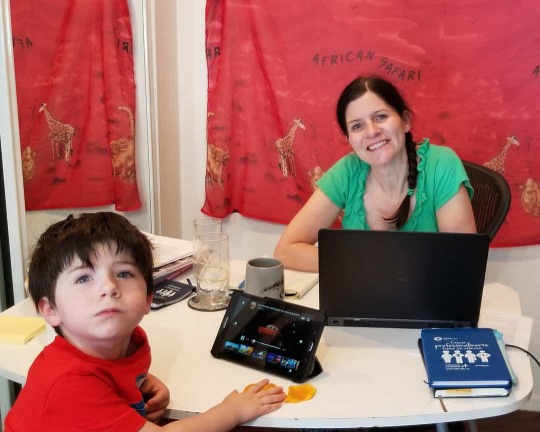
But since the spring, the office, the classroom and her family’s home have all merged “like there were no more boundaries,” Wells says. “We’re all at home in a small space trying to make things work.”
When it became too much, Wells says her manager went to bat for her, encouraging Wells to take the leave allowed under the federal medical leave act when she was unable to take off under a similar university program because she was deemed an essential worker.
“I didn’t realize how bad it was until I took the break,” Wells said of the pressure she’d felt juggling work with her added responsibilities at home.
Before her leave, Wells tried to create an office out of her bedroom, but “sometimes there was literally no place to go,” she says. “The baby would be napping in one room and the older kids are on calls, and my husband would be on an interview and I’d have a meeting (all) at the same time.”
While her husband has been helpful with household chores, he would sometimes forget to put their daughters on their scheduled calls. Wells was the one the girls came to with questions about their Spanish homework. And then there was her young son, whose preschool was also closed at the time.
“Part of what made it so incredibly difficult was having a three-and-a-half-year-old who didn’t understand that Mommy was on a call and would literally be crying behind a locked door saying ‘Let me in. I want a hug,’ ” she says. “He doesn’t understand you’re here … but you’re not really available.”
Remembering those struggles as she looks toward the fall is making her “anxious that it’s going to get to that again.”
After finding out that her children’s learning will take place online at least initially when school starts August 20th, Wells went on family leave in early July to ease some of her stress.
Wells is due back to work on Aug. 24th, though the leave could be extended until the end of September. Her employer continues to be supportive, but Wells says it’s been harder to ease the pressure on herself.
“The stress and anxiety I have is coming from myself and who I am and how I like to perform,’’ says Wells, who was the first person in her family to go to college and went on to earn her PhD. “The other thing that weighs on the back of my mind is, when they do have to have furloughs and make cuts, how are those decisions going to be made? And how are those going to impact working parents and working mothers in particular?”
‘I don’t get that break’
Harriet Thomas, a mother of five, says her children began school remotely on Aug. 3.

A supervising child support specialist for Los Angeles County, her employer has been flexible, letting employees work remotely and shifting start times to when it’s more convenient for them.
Thomas’s days start with her logging on to her computer at 7 a.m. The four older children, who range in age from 4 to 8, get up an hour later. Then, with Zoom classes, lunch breaks, and supplemental lessons in subjects like cursive during the afternoon, the day doesn’t slow down until everyone goes to bed at 8 p.m.
Thomas also has a 1-year-old daughter that her husband tends to.
She appreciates not having to commute nearly two hours each day, and enjoys being able to supervise her children’s education. But Thomas says there’s a constant push and pull.
“I … have to decide which issue is more urgent, what I’m doing online with work or their immediate issue,” she says of her children. “I may have to stop what I’m doing to find whatever school supply they’re looking for … It’s rough sometimes, but I have to do it.’
She’ll also likely have to put her pursuit of a doctorate degree on hold since she no longer has the office lunch breaks or small window of time between leaving work and picking up the kids to study.
“I never have time for myself,” she says. “With them being at home, and me being at home, I don’t get that break.”
‘I don’t want to be the bottleneck’
Mary Richards, a mother of three in Monona, Wisconsin, says her children’s school year will also start out with virtual learning. That means she will be juggling her work as an accountant for the city of Madison with trying to keep her 5-year old daughter engaged with online lessons, while trying to get her 1-year-old to sleep twice a day.

When she puts the baby down for her naps, Richards often sits beside her, pecking quietly on her laptop. “I might be working, but I also have one eye on her the whole time too,” she says. “So I’m definitely not as productive.”
Her employer has been understanding. Still, she doesn’t want to spark resentment among colleagues.
“I know how it feels to wait for somebody else to do their part,” Richards says. “I don’t want to be the bottleneck.”
Friction arising between employees who are parents and their peers who are not is a real concern.
Among workers without children, 39% believe their colleagues who are parents are more distracted, according to Perceptyx. A quarter say their workload has increased and become harder to tackle because of their peers who have children, and 29% say their colleagues who are parents are less productive.
Retention, recruitment on the line
But many employers believe workers need flexibility during a challenging time.
Among companies, 59% have offered flexible hours to support the caregiving responsibilities of their employees and another 29% are planning or considering that option, according to Willis Towers Watson. And 51% of businesses will enhance their flexible hours offering this year or in 2021, while 28% will boost their back up child care benefit.
With so many employees facing similar challenges, employers “have to think about retention issues, and they have to think about how they’re viewed in social media and otherwise for future recruitment efforts,” Pryor says.
Perceptyx found that 92% of employees who strongly believe their employers are providing the leeway and support needed to work from home while caring for children plan to stay at the company for at least the next 12 months.
Some employees may also want to consider switching to a part-time schedule even if it means a pay cut, says Pryor. And working parents could possibly hire high school or college students who are also learning remotely to supervise younger children who are at home.
“There are options in how to make it work,” Pryor says.
Follow Charisse Jones on Twitter@charissejones
from WordPress https://ift.tt/3ayWoyI
via IFTTT
0 notes
Text
Zadie Smith: dance lessons for writers
New Post has been published on https://writingguideto.com/must-see/zadie-smith-dance-lessons-for-writers/
Zadie Smith: dance lessons for writers
From Fred Astaires elegance to Beyoncs power, Zadie Smith is inspired by dancers as much she is by other writers
The connection between writing and dancing has been much on my mind recently: its a channel I want to keep open. It feels a little neglected compared to, say, the relationship between music and prose maybe because there is something counter-intuitive about it. But for me the two forms are close to each other: I feel dance has something to tell me about what I do.
One of the most solid pieces of writing advice I know is in fact intended for dancers you can find it in the choreographer Martha Grahams biography. But it relaxes me in front of my laptop the same way I imagine it might induce a young dancer to breathe deeply and wiggle their fingers and toes. Graham writes: There is a vitality, a life force, an energy, a quickening that is translated through you into action, and because there is only one of you in all of time, this expression is unique. And if you block it, it will never exist through any other medium and it will be lost. The world will not have it. It is not your business to determine how good it is nor how valuable nor how it compares with other expressions. It is your business to keep it yours clearly and directly, to keep the channel open.
What can an art of words take from the art that needs none? Yet I often think Ive learned as much from watching dancers as I have from reading. Dance lessons for writers: lessons of position, attitude, rhythm and style, some of them obvious, some indirect. What follows are a few notes towards that idea.
Gene Kelly and Fred Astaire
Alamy; The Life Picture Collection/Getty Images. Top: Getty Images
Fred Astaire and Gene Kelly
Fred Astaire represents the aristocracy when he dances, claimed Gene Kelly, in old age, and I represent the proletariat. The distinction is immediately satisfying, though its a little harder to say why. Tall, thin and elegant, versus muscular and athletic is that it? Theres the obvious matter of top hat and tails versus T-shirt and slacks. But Fred sometimes wore T-shirts and slacks, and was not actually that tall, he only stood as if he were, and when moving always appeared elevated, to be skimming across whichever surface: the floor, the ceiling, an ice rink, a bandstand. Genes centre of gravity was far lower: he bends his knees, he hunkers down. Kelly is grounded, firmly planted, where Astaire is untethered, free-floating.
Likewise, the aristocrat and the proletariat have different relations to the ground beneath their feet, the first moving fluidly across the surface of the world, the second specifically tethered to a certain spot: a city block, a village, a factory, a stretch of fields. Cyd Charisse claimed her husband always knew which of these dancers shed been working with by looking at her body at the end of the day: bruised everywhere if it was Kelly, not a blemish if it was Astaire. Not only aloof when it came to the ground, Astaire was aloof around other peoples bodies. Through 15 years and 10 movies, its hard to detect one moment of real sexual tension between Fred and his Ginger. They have great harmony but little heat. Now think of Kelly with Cyd Charisse in the fantasy sequence of Singin in the Rain! And maybe this is one of the advantages of earthiness: sex.
When I write I feel theres usually a choice to be made between the grounded and the floating. The ground I am thinking of in this case is language as we meet it in its commonsense mode. The language of the television, of the supermarket, of the advert, the newspaper, the government, the daily public conversation. Some writers like to walk this ground, recreate it, break bits of it off and use it to their advantage, where others barely recognise its existence. Nabokov a literal aristocrat as well as an aesthetic one barely ever put a toe upon it. His language is literary, far from what we think of as our shared linguistic home.
One argument in defence of such literary language might be the way it admits its own artificiality. Commonsense language meanwhile claims to be plain and natural, conversational, but is often as constructed as asphalt, dreamed up in ad agencies or in the heart of government sometimes both at the same time. Simultaneously sentimental and coercive. (The Peoples Princess. The Big Society. Make America Great Again.) Commonsense language claims to take its lead from the way people naturally speak, but any writer who truly attends to the way people speak will soon find himself categorised as a distinctive stylist or satirist or experimentalist. Beckett was like this, and the American writer George Saunders is a good contemporary example. (In dance, the example that comes to my mind is Bill Bojangles Robinson, whose thing was tapping up and down the stairs. What could be more normal, more folksy, more grounded and everyday than tapping up and down some stairs? But his signature stage routine involved a staircase pressed right up against another staircase a stairway to itself and so up and down he would tap, up and down, down and up, entirely surreal, like an Escher print come to life.)
Astaire is clearly not an experimental dancer like Twyla Tharp or Pina Bausch, but he is surreal in the sense of surpassing the real. He is transcendent. When he dances a question proposes itself: what if a body moved like this through the world? But it is only a rhetorical, fantastical question, for no bodies move like Astaire, no, we only move like him in our dreams.
By contrast, I have seen French boys run up the steps of the High Line in New York to take a photo of the view, their backsides working just like Gene Kellys in On The Town, and I have seen black kids on the A train swing round the pole on their way out of the sliding doors Kelly again, hanging from that eternal lamppost. Kelly quoted the commonplace when he danced, and he reminds us in turn of the grace we do sometimes possess ourselves. He is the incarnation of our bodies in their youth, at their most fluid and powerful, or whenever our natural talents combine ideally with our hard-earned skills. He is a demonstration of how the prosaic can turn poetic, if we work hard enough. But Astaire, when he dances, has nothing to do with hard work (although we know, from biographies, that he worked very hard, behind the scenes). He is poetry in motion. His movements are so removed from ours that he sets a limit on our own ambitions. Nobody hopes or expects to dance like Astaire, just as nobody really expects to write like Nabokov.
Harold and Fayard Nichols
Getty
Harold and Fayard Nicholas
Writing, like dancing, is one of the arts available to people who have nothing. For 10 and sixpence, advises Virginia Woolf, one can buy paper enough to write all the plays of Shakespeare. The only absolutely necessary equipment in dance is your own body. Some of the greatest dancers have come from the lowliest backgrounds. With many black dancers this has come with the complication of representing your race. You are on a stage, in front of your people and other people. What face will you show them? Will you be your self? Your best self? A representation? A symbol?
The Nicholas brothers were not street kids they were the children of college-educated musicians but they were never formally trained in dance. They learned watching their parents and their parents colleagues performing on the chitlin circuit, as black vaudeville was then called. Later, when they entered the movies, their performances were usually filmed in such a way as to be non-essential to the story, so that when these films played in the south their spectacular sequences could be snipped out without doing any harm to the integrity of the plot. Genius contained, genius ring-fenced. But also genius undeniable.
My talent was the weapon, argued Sammy Davis Jr, the power, the way for me to fight. It was the one way I might hope to affect a mans thinking. Davis was another chitlin hoofer, originally, and from straitened circumstances. His logic here is very familiar: it is something of an article of faith within the kinds of families who have few other assets. A mother tells her children to be twice as good, she tells them to be undeniable. My mother used to say something like it to me. And when I watch the Nicholas brothers I think of that stressful instruction: be twice as good.
The Nicholas brothers were many, many magnitudes better than anybody else. They were better than anyone has a right or need to be. Fred Astaire called their routine in Stormy Weather the greatest example of cinematic dance he ever saw. They are progressing down a giant staircase doing the splits as if the splits is the commonsense way to get somewhere. They are impeccably dressed. They are more than representing they are excelling.
But I always think I spot a little difference between Harold and Fayard, and it interests me; I take it as a kind of lesson. Fayard seems to me more concerned with this responsibility of representation when he dances: he looks the part, he is the part, his propriety unassailable. He is formal, contained, technically undeniable: a credit to the race. But Harold gives himself over to joy. His hair is his tell: as he dances it loosens itself from the slather of Brylcreem he always put on it, the irrepressible afro curl springs out, he doesnt even try to brush it back. Between propriety and joy, choose joy.
Prince & Micheal Jackson
Redferns; Sygma via Getty Images
Michael Jackson and Prince
On YouTube you will find them, locked in many dance-offs, and so you are presented with a stark choice. But its not a question of degrees of ability, of who was the greater dancer. The choice is between two completely opposite values: legibility on the one hand, temporality on the other. Between a monument (Jackson) and a kind of mirage (Prince).
But both men were excellent dancers. Putting aside the difference in height, physically they had many similarities. Terribly slight, long necked, thin-legged, powered from the torso rather than the backside, which in both cases was improbably small. And in terms of influence they were of course equally indebted to James Brown. The splits, the rise from the splits, the spin, the glide, the knee bend, the jerk of the head all stolen from the same source.
Yet Prince and Jackson are nothing alike when they dance, and its very hard to bring to mind Prince dancing, whereas it is practically impossible to forget Jackson. It sounds irrational, but try it for yourself. Princes moves, no matter how many times you may have observed them, have no firm inscription in memory; they never seem quite fixed or preserved. If someone asks you to dance like Prince, what will you do? Spin, possibly, and do the splits, if youre able. But there wont appear to be anything especially Prince-like about that. Its mysterious. How can you dance and dance, in front of millions of people, for years, and still seem like a secret only I know? (And isnt it the case that to be a Prince fan is to feel that Prince was your secret alone?)
I never went to see Michael Jackson, but I saw Prince half a dozen times. I saw him in stadiums with thousands of people, so have a rational understanding that he was in no sense my secret, that he was in fact a superstar. But I still say his shows were illegible, private, like the performance of a man in the middle of a room at a house party. It was the greatest thing you ever saw and yet its greatness was confined to the moment in which it was happening.
Jackson was exactly the opposite. Every move he made was absolutely legible, public, endlessly copied and copyable, like a meme before the word existed. He thought in images, and across time. He deliberately outlined and then marked once more the edges around each move, like a cop drawing a chalk line round a body. Stuck his neck forward if he was moving backwards. Cut his trousers short so you could read his ankles. Grabbed his groin so you could better understand its gyrations. Gloved one hand so you might attend to its rhythmic genius, the way it punctuated everything, like an exclamation mark.
Towards the end, his curious stagewear became increasingly tasked with this job of outline and distinction. It looked like a form of armour, the purpose of which was to define each element of his body so no movement of it would pass unnoted. His arms and legs multiply strapped a literal visualisation of his flexible joints and a metallic sash running left to right across his breastplate, accentuating the shift of his shoulders along this diagonal. A heavyweights belt accentuated slender hips and divided the torso from the legs, so you noticed when the top and bottom half of the body pulled in opposite directions. Finally a silver thong, rendering his eloquent groin as clear as if it were in ALL CAPS. It wasnt subtle, there was no subtext, but it was clearly legible. People will be dancing like Michael Jackson until the end of time.
But Prince, precious, elusive Prince, well, there lays one whose name was writ in water. And from Prince a writer might take the lesson that elusiveness can possess a deeper beauty than the legible. In the world of words, we have Keats to remind us of this, and to demonstrate what a long afterlife an elusive artist can have, even when placed beside as clearly drawn a figure as Lord Byron. Prince represents the inspiration of the moment, like an ode composed to capture a passing sensation. And when the mood changes, he changes with it: another good lesson.
Theres no freedom in being a monument. Better to be the guy still jamming in the wee hours of the house party, and though everybody films it on their phones no one proves quite able to capture the essence of it. And now hes gone, having escaped us one more time. I dont claim Princes image wont last as long as Jacksons. I only say that in our minds it will never be as distinct.
Janet Jackson Madonna Beyonce
Michel Linssen/Redferns/Getty; Dave Hogan/Getty; Matt Slocum/AP
Janet Jackson / Madonna / Beyonc
These three dont just invite copies they demand them. They go further than legibility into proscription. They lead armies, and we join them. We are like those uniformed dancers moving in military formation behind them, an anonymous corps whose job it is to copy precisely the gestures of their general.
This was made literal on Beyoncs Formation tour recently, when the general raised her right arm like a shotgun, pulled the trigger with her left and the sound of gunshot rang out. There is nothing intimate about this kind of dancing: like the military, it operates as a form of franchise, whereby a ruling idea America, Beyonc presides over many cells that span the world. Maybe it is for this reason that much of the crowd I saw at Wembley could be found, for long periods, not facing in the direction of the stage at all, instead turning to their friends and partners. They didnt need to watch Beyonc any more than soldiers need to look fixedly at the flag to perform their duties. Our queen was up there somewhere dancing but the idea of her had already been internalised. Friends from the gym stood in circles and pumped their fists, girlfriends from hen nights turned inwards and did Beyonc to each other, and boys from the Beyhive screamed every word into each others faces. They could have done the same at home, but this was a public display of allegiance.
Janet Jackson kicked off this curious phenomenon, Madonna continued it, Beyonc is its apex. Here dancing is intended as a demonstration of the female will, a concrete articulation of its reach and possibilities. The lesson is quite clear. My body obeys me. My dancers obey me. Now you will obey me. And then everybody in the crowd imagines being obeyed like Bey a delightful imagining.
Lady writers who inspire similar devotion (in far smaller audiences): Muriel Spark, Joan Didion, Jane Austen. Such writers offer the same essential qualities (or illusions): total control (over their form) and no freedom (for the reader). Compare and contrast, say, Jean Rhys or Octavia Butler, lady writers much loved but rarely copied. Theres too much freedom in them. Meanwhile every sentence of Didions says: obey me! Who runs the world? Girls!
David Byrne
Rex/Shutterstock
David Byrne and David Bowie
The art of not dancing a vital lesson. Sometimes it is very important to be awkward, inelegant, jerking, to be neither poetic nor prosaic, to be positively bad. To express other possibilities for bodies, alternative values, to stop making sense. Its interesting to me that both these artists did their worst dancing to their blackest cuts. Take me to the river, sings Byrne, in square trousers 20 times too large, looking down at his jerking hips as if they belong to someone else. This music is not mine, his trousers say, and his movements go further: maybe this body isnt mine, either. At the end of this seam of logic lies a liberating thought: maybe nobody truly owns anything.
People can be too precious about their heritage, about their tradition writers especially. Preservation and protection have their place but they shouldnt block either freedom or theft. All possible aesthetic expressions are available to all peoples under the sign of love. Bowie and Byrnes evident love for what was not theirs brings out new angles in familiar sounds. It hadnt occurred to me before seeing these men dance that a person might choose, for example, to meet the curve of a drum beat with anything but the matching curving movement of their body, that is, with harmony and heat. But it turns out you can also resist: throw up a curious angle and suddenly spasm, like Bowie, or wonder if thats truly your own arm, like Byrne.
I think of young Luther Vandross, singing backup a few feet behind Bowie, during Young Americans, watching Bowie flail and thrash. I wonder what his take on all that was. Did he ever think: Now, what in the world is he doing? But a few performances in, it was clear to everybody. Here was something different. Something old, and yet new.
Rudolf Nureyev and Mikhail Baryshnikov
Sipa Press/Rex/Shutterstock; Getty Images
Rudolf Nureyev and Mikhail Baryshnikov
When you face an audience, which way will you turn? Inwards or outwards? Or some combination of the two? Nureyev, so fierce and neurotic, so vulnerable, so beautiful like a deer suddenly caught in our headlamps is faced resolutely inwards. You cant take your eyes off him, as people like to say, but at the same time he is almost excruciating to watch. We feel we might break him, that he might crumble or explode. He never does, but still, whenever he leaps you sense the possibility of total disaster, as you do with certain high-strung athletes no matter how many times they run or jump or dive. With Nureyev you are an onlooker, you are a person who has been granted the great honour of being present while Nureyev dances. I dont mean this sarcastically: it is an honour to watch Nureyev, even in these grainy old videos on YouTube. Hes a kind of miracle, and is fully cognisant of this when he dances, and what did you do today to warrant an audience with a miracle? (See also: Dostoevsky.)
With Baryshnikov, I have no fears of disaster. He is an outward-facing artist, he is trying to please me and he succeeds completely. His face dances as much as his arms and legs. (Nureyevs face, meanwhile, is permanently lost in transcendent feeling.) Sometimes Baryshnikov wants to please me so much hell even try tap dancing with Liza Minnelli, risking the scorn of the purists. (I am not a purist. I am delighted!) He is a charmer, an entertainer, he is comic, dramatic, cerebral, a clown whatever you need him to be. Baryshnikov is both loving and loved. He has high and low modes, tough and soft poses, but hes always facing outwards, to us, his audience. (See also: Tolstoy.)
Once I met Baryshnikov over a New York dinner table: I was so star-struck I could hardly speak. Finally I asked him: Did you ever meet Fred Astaire? He smiled. He said: Yes, once, at a dinner. I was very star-struck, I hardly spoke. But I watched his hands all the time, they were like a lesson in themselves so elegant!
Swing Time by Zadie Smith is published on 15 November (Hamish Hamilton, 18.99). To order a copy for 15.57, go to bookshop.theguardian.com or call 0330 333 6846.
Read more: http://www.theguardian.com/us
0 notes
Text
Zadie Smith: dance lessons for scribes
From Fred Astaires elegance to Beyoncs power, Zadie Smith is inspired by dancers just as much she is by other writers
The connection between writing and dancing has been much on my mind recently: its a canal I want to keep open. It detects a bit neglected to report to, say, the ties between music and prose perhaps because there is something counter-intuitive about it. But for me the two forms are close to each other: I experience dance has something to tell me about what I do.
One of the most solid portions of writing advice I know is in fact intended for dancers you can find it in the choreographer Martha Grahams biography. But it loosens me in front of my laptop the same path I thoughts it might encourage a young dancer to breathe deeply and wiggle their paws and toes. Graham writes: There is a vitality, a life force, an energy, a accelerate that is translated through you into action, and because there is only one of you in all of epoch, this face is unique. And if you stymie it, it will never prevail through any other medium and it will be lost. The world will not have it. It is not your business to determine how good it is nor how important nor how it compares with other idioms. It is your business to keep it yours clearly and instantly, to keep the canal open.
What can an artistry of words take from the artwork that needs none? Yet I often envision Ive learned just as much from watching dancers as I have from speaking. Dance lessons for columnists: assignments of prestige, posture, tempo and form, some of them obvious, some indirect. What follows are a few documents towards that idea.
Gene Kelly and Fred Astaire
Alamy; The Life Picture Collection/ Getty Images. Crown: Getty Images
Fred Astaire and Gene Kelly
Fred Astaire represent the elite when he dances, claimed Gene Kelly, in old age, and I represent the proletariat. The mark is immediately satisfactory, although it was a little harder to say why. Towering, thin and tasteful, versus muscular and sporting is the fact that it? Theres the obvious content of top hat and tails versus T-shirt and slacks. But Fred sometimes wore T-shirts and slacks, and was not actually that towering, this is the only way digested as if “hes been”, and when moving always shown heightened, to be gliding across whichever surface: the floor, the ceiling, an ice rink, a bandstand. Genes centre of gravity was far less: he stoops his knees, he hunkers down. Kelly is sanded, securely planted, where Astaire is untethered, free-floating.
Likewise, the aristocrat and the proletariat have differing relations to the soil beneath their paws, the first moving fluidly across the surface of the world, the second largest specific tethered to a certain blot: a city block, village representatives, a factory, a stretch of fields. Cyd Charisse claimed her husband “ve always known” which of these dancers molted been working with by looking at her body at the end of the day: bruised everywhere if it was Kelly , not a blemish if “its been” Astaire. Not simply aloof when it came to the field, Astaire was aloof around other peoples forms. Through 15 times and 10 movies, its hard to detect one moment of real sex friction between Fred and his Ginger. They have great peace but little hot. Now think of Kelly with Cyd Charisse in the fantasy string of Singin in the Rain! And perhaps “its one of” certain advantages of earthiness: sex.
When I write I detect theres typically a choice to be made between the grounded and the float. The floor I am thinking of in such a case is speech as we fulfill it in its commonsense mode. The communication of the television, of the supermarket, of the advert, the newspaper, the government, the daily public dialogue. Some novelists like to walk this field, recreate it, separate bits of it off and use it to their advantage, where others scarcely recognise its existence. Nabokov a literal aristocrat as well as an aesthetic one just ever put a toe upon it. His speech is literary, far from what we think up as our shared linguistic home.
One argument in defence of such literary communication might be the behavior it admits its own artificiality. Commonsense language meanwhile claims to be plateau and natural, conversational, but is often as fabricated as asphalt, dreamed up in ad organizations or in the heart of government sometimes both at the same meter. Simultaneously romantic and coercive.( The Peoples Princess. The Big Society. Make America Great Again .) Commonsense language claims to take its precede from the road parties naturally speak, but any scribe who truly attends to the room people communicate will shortly find himself categorised as a distinctive stylist or satirist or experimentalist. Beckett was like this, and the American columnist George Saunders is a good contemporary sample.( In dance, the pattern that comes to my thinker is Bill Bojangles Robinson, whose circumstance was tapping up and down the stairs. What could be more ordinary, more folksy, more grounded and everyday than tapping up and down some stairs? But his signature theatre number implied a staircase pressed right up against another staircase a stairway to itself and so up and down he would tap, up and down, down and up, exclusively surreal, like an Escher publication be submitted to life .)
Astaire is clearly not an experimental dancer like Twyla Tharp or Pina Bausch, but “he il be” surreal within the meaning of outperforming the real. He is transcendent. When he dances a few questions proposes itself: what if a figure moved like this through the world? But it is only a rhetorical, fantastical interrogation, for no mass move like Astaire , no, we are just move like him in our dreams.
By contrast, I have received French boys run up the phases of the High Line in New York to take a photo of the opinion, their backsides working just like Gene Kellys in On The Town, and I have met black girls on the A train swing round the pole on their way out of the slide doorways Kelly again, hanging from that eternal lamppost. Kelly mentioned the commonplace where reference is danced, and he reminds us in turn of the mercy we do sometimes own ourselves. He is the incarnation of our mass in their youth, at their most liquor and potent, or whenever our natural endowments blend ideally with our hard-earned abilities. He is a demonstration of how the prosaic can return poetic, if we work hard enough. But Astaire, where reference is dances, has nothing to do with hard work( although we know, from biographies, that he worked very hard, behind the scenes ). He is poetry in motion. His movements are so removed from ours that he adjusts a limit on our own ambitions. None hopes or expects to dance like Astaire, just as nothing truly expects to write like Nabokov.
Harold and Fayard Nichols
Getty
Harold and Fayard Nicholas
Writing, like dancing, is only one of the arts available to people who have nothing. For 10 and sixpence, advises Virginia Woolf, one can buy paper enough to write all the plays of Shakespeare. The only absolutely necessary material in dance is your own body. Some of the greatest dancers have come from the lowliest backgrounds. With many pitch-black dancers this has come with the complication of representing your race. You are on a theatre, in front of your parties and other people. What appearance will you show them? Will you be your soul? Your best self? A image? A typify?
The Nicholas friends were not street minors they were the children of college-educated musicians but they were never formally trained in dance. They learned watching their parents and their parents colleagues performing on the chitlin circuit, as pitch-black vaudeville was then called. Later, when they entered the movies, their executions were generally filmed in such a way as to be non-essential to the narrative, so that when these movies played in the south their splendid sequences “couldve been” snipped out without doing any harm to the integrity of the plan. Genius contained, genius ring-fenced. But likewise genius undeniable.
My talent was the weapon, insisted Sammy Davis Jr, the influence, the course for me to fight. It was the one behavior I might hope to affect a followers pondering. Davis was another chitlin hoofer, originally, and from straitened environments. His logic here is very familiar: it is something of an article of faith within the kinds of class who have few other resources. A baby tells her children to be twice as good, she tells them to be indisputable. My father used to say something like it to me. And when I watch the Nicholas brethren I think of that traumatic teach: be twice as good.
The Nicholas brothers were numerous, numerous importances better than anybody else. They were better than anyone has a right or need to be. Fred Astaire called their routine in Stormy Weather the greatest example of cinematic dance he ever attend. They are developing down a giant staircase doing the separates as if the splits is the commonsense behavior to get somewhere. They are impeccably garmented. They are more than representing they are excelling.
But I always visualize I discern a little difference between Harold and Fayard, and it interests me; I take it as a kind of lesson. Fayard seems to me more concerned with this responsibility of the representatives when he dances: he looks the part, he is the part, his propriety unassailable. He is formal, contained, technically indisputable: a recognition to the hasten. But Harold grants himself over to joy. His mane is his tell: as he dances it loosens itself from the slather of Brylcreem he ever put on it, the irrepressible afro scroll springtimes out, he doesnt even try to brush it back. Between propriety and joyfulnes, select joy.
Prince& Micheal Jackson
Redferns; Sygma via Getty Images
Michael Jackson and Prince
On YouTube you will find them, locked in numerous dance-offs, and so you are presented with a stark alternative. But its not a question of stages of ability, of who was “the worlds largest” dancer. The pick is between two altogether opposite appraises: legibility on the one handwriting, temporality on the other. Between a gravestone( Jackson) and a kind of mirage( Prince ).
But both men were good dancers. Putting aside the difference in height, physically they had many similarities. Abysmally slight, long necked, thin-legged, powered from the torso rather than the backside, which in both cases was improbably small. And in terms of influence they were of course evenly indebted to James Brown. The separates, the increases from the separates, the invent, the glide, the knee bend, the schmuck of the head all been stealing from the same source.
Yet Prince and Jackson are nothing alike when they dance, and its very hard to bring to sentiment Prince dancing, whereas it is practically impossible to forget Jackson. It clangs irrational, but try it for yourself. Monarch moves , no matter how many times you may have discovered them, had not yet been conglomerate inscription in remembrance; they never seem quite fixed or saved. If person asks you to dance like Prince, what will you do? Spin, possibly, and do the divides, if youre able. But there wont appear to be anything especially Prince-like about that. Its strange. How are you able dance and dance, in front of thousands of beings, for years, and still seem like trade secrets simply I know?( And isnt it the instance that to be a Prince fan is to feel that Prince was your secret alone ?)
I never went to see Michael Jackson, but I insured Prince half a dozen days. I visualized him in stadia with thousands of parties, so have a rational understanding that he was in no sense my secret, that he was in fact a celebrity. But I still say his demonstrates were illegible, private, like the performance of a follower in the middle of a room at a house party. It was the greatest concept you ever perceive and hitherto its greatness was confined to the moment in which it was happening.
Jackson was exactly the opposite. Every move he made was absolutely readable, public, endlessly facsimile and copyable, like a meme before the word existed. He conceived in likeness, and across occasion. He purposely outlined and then commemorated once more the edges around each move, like a polouse outlining a chalk front round a body. Stuck his cervix forward if he was moving backwards. Cut his trousers short so you could spoke his ankles. Grabbed his groin so you could better understand its gyrations. Gloved one hand so you might attend to its rhythmic genius, the path it punctuated everything, like an utterance mark.
Towards the end, his strange stagewear became increasingly tasked with this job of drawing and separation. It looked like a model of armor, the purpose of which was to define each element of his form so no push of it would legislate unnoted. His arms and legs multiply fastened a literal visualisation of his flexible joints and a metal sash leading left to right across his breastplate, accentuating the alteration of his shoulders along this diagonal. A heavyweights loop accented slim hips and subdivided the torso from the legs, so you discovered when the top and foot half of the body pulled in opposite tendencies. Finally a silver-tongued thong, making his persuasive groin as clear as if it were in ALL CAPS. It wasnt subtle, “there werent” subtext, but it was clearly legible. Beings will be dancing like Michael Jackson until the end of time.
But Prince, treasured, elusive Sovereign, well, there lays one whose figure was writ in liquid. And from Prince a columnist might take the lesson that elusiveness can possess a deeper beauty than the legible. In “the worlds” of words, we have Keats to remind us of this, and to express what a long afterlife an elusive master can have, even when residence beside as clearly described a illustration as Lord Byron. Prince represents the inspiration of the moment, like an ode composed to captivate a guide superstar. And when the humor changes, he changes with it: another good lesson.
Theres no democracy in has become a tombstone. Better to be the guy still jamming in the wee hours of the house party, and though everybody movies it on their phones no one demonstrates quite able to captivate the essence of it. And now hes get, having escaped us one more time. I dont contend Rulers epitome wont last-place as long as Jacksons. I merely say that in our minds it will never be as distinct.
Janet Jackson Madonna Beyonce
Michel Linssen/ Redferns/ Getty; Dave Hogan/ Getty; Matt Slocum/ AP
Janet Jackson/ Madonna/ Beyonc
These three dont exactly invite transcripts they demand them. They go further than legibility into proscription. They extend hordes, and we join them. We are like those uniformed dancers moving in military pattern behind them, an anonymous corps whose errand it is to replica accurately the gesticulates of their general.
This was induced literal on Beyoncs Formation tour recently, when members of the general invoked her right arm like a shotgun, gathered the initiation with her left and the reverberate of gunshot resound out. There is nothing insinuate about these sorts of dancing: like the military forces, it operates as a word of dealership, whereby a decree meaning America, Beyonc presides over numerous cadres that span “the worlds”. Maybe it is for this reason that much of the crowd I heard at Wembley could be found, for long periods , not facing in the direction of the stage at all, instead turning to their friends and partners. They didnt need to watch Beyonc any more than soldiers need to look fixedly at the flag to perform their duties. Our monarch was up there somewhere dancing but the relevant recommendations of her had already been internalised. Friends from the gym put in cliques and ran their fists, girlfriends from hen nights passed inwards and did Beyonc to each other, and boys from the Beyhive screamed every parole into each others faces. They could have done the same at home, but this was a public display of allegiance.
Janet Jackson knocked off this curious phenomenon, Madonna sustained it, Beyonc is its apex. Here dancing is intended as a show of the female will, a concrete articulation of its reach and possibilities. The lesson is quite evident. My torso obeys me. My dancers obey me. Now you will obey me. And then everybody in the crowd reckons being obeyed like Bey a delightful imagining.
Lady scribes who invigorate similar piety( in far smaller audiences ): Muriel Spark, Joan Didion, Jane Austen. Such columnists give the same essential qualities( or illusions ): total limit( over their pattern) and no freedom( for the reader ). Compare and contrast, say, Jean Rhys or Octavia Butler, girl columnists much adoration but rarely simulated. Theres too much impunity in them. Meanwhile every convict of Didions says: obey me! Who operates “the worlds”? Girls!
David Byrne
Rex/ Shutterstock
David Byrne and David Bowie
The art of not dancing a crucial lesson. Sometimes it is essential to be awkward, clumsy, jerking, to be neither poetic nor banal, to be positively bad. To utter other the chances of figures, alternative evaluates, to stop making sense. Its interested in me that both these creators did their worst dancing to their blackest gashes. Take me to the river, sings Byrne, in square trousers 20 times too big, searching down at his jerking hips as if they belong to someone else. This music is not quarry, his trousers say, and his pushes go further: perhaps this body isnt mine, either. At the end of this seam of logic lies a liberating gues: perhaps nobody absolutely owns anything.
People can be too precious about their heritage, about their habit writers especially. Preservation and protection have their situate but they shouldnt block either impunity or theft. All possible aesthetic idioms are available to all families under the mansion of affection. Bowie and Byrnes evident adore for what was not theirs brought about by new inclinations in familiar dins. It hadnt arose to me before accompanying these men dance that a person might elect, for example, to converge the arch of a container hit with anything but the parallel bending action of their body, that is, with accord and heat. But it is about to change you can also repel: throw up a strange angle and suddenly spasm, like Bowie, or wonder if thats rightfully your own arm, like Byrne.
I think of young Luther Vandross, singing backup a few hoofs behind Bowie, during Young Americans, watching Bowie flail and thresh. I wonder what his take over all that was. Did he ever conceive: Now, what in the world is he doing? But a few concerts in, it was clear to everybody. Here was something different. Something old, and yet new.
Rudolf Nureyev and Mikhail Baryshnikov
Sipa Press/ Rex/ Shutterstock; Getty Images
Rudolf Nureyev and Mikhail Baryshnikov
When you face an gathering, which style will you return? Inwards or outwards? Or some combining of the two? Nureyev, so relentless and neurotic, so susceptible, so beautiful like a deer abruptly caught in our headlamps is faced resolutely inwards. You cant take your eyes off him, as beings like to say, but at the same occasion he is almost excruciating to watch. We experience we might snap him, that he might disintegrate or explosion. He never does, but still, whenever he leaps you sense the possibility of total catastrophe, as you do with certain high-strung players no matter how many times they lead or jump or nose-dive. With Nureyev you are an onlooker, you are a person who has been granted the great honor of being present while Nureyev dances. I dont necessitate this sarcastically: it is an honour to watch Nureyev, even in these grainy age-old videos on YouTube. Hes a kind of miracle, and is fully cognisant of this when he dances, and what did you do today to authorize an gathering with a miracle?( See too: Dostoevsky .)
With Baryshnikov, I have no horrors of disaster. He is an outward-facing creator, he is trying to satisfy me and he supersedes altogether. His face dances as much as his arms and legs.( Nureyevs face, meanwhile, is permanently lost in transcendent seeming .) Sometimes Baryshnikov wants to please me so much blaze even try tap dancing with Liza Minnelli, risking the sneer of the purists.( I am not a purist. I am delighted !) He is a charmer, an entertainer, “he il be” comic, dramatic, cerebral, a clown whatever you need him to be. Baryshnikov is both desiring and adoration. He has high and low modes, tough and soft constitutes, but hes ever facing outwards, to us, his audience.( See too: Tolstoy .)
Once I fulfilled Baryshnikov over a New York dinner table: I was so star-struck I is more difficult to pronounce. Lastly I asked him: Did you ever satisfy Fred Astaire? He smiled. He said: Yes, formerly, at a dinner. I was very star-struck, I hardly expressed. But I watched his hands all the time, they were like a assignment in themselves so sumptuous!
Swing Time by Zadie Smith is published on 15 November( Hamish Hamilton, 18.99 ). To prescribe a photocopy for 15.57, going to see bookshop.theguardian.com or announce 0330 333 6846.
Read more: www.theguardian.com
The post Zadie Smith: dance lessons for scribes appeared first on vitalmindandbody.com.
from WordPress http://ift.tt/2A3WCOY
via IFTTT
0 notes